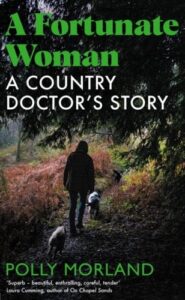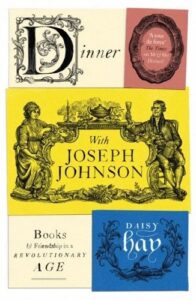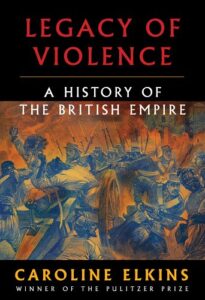A Fortunate Woman: A Country Doctor’s Story by Polly Morland

How did you conduct your research?
The documentary method, with its emphasis on close observation, has formed the spine of my research for A Fortunate Woman. This approach elicits a very particular kind of story, one that blends intimacy and distance in a way that’s proved vital to this book. It’s built around a year of observation and conversation with the doctor whose story it tells, above all, the many hours we spent walking together through the woods of the valley where the book is set. In part, this was a practical response to the safety concerns of the Covid pandemic, but it turned out that the dynamics of these long walks opened up the story far beyond the emergency of the moment, allowing the doctor to talk about her life. I also conducted numerous interviews with patients, colleagues and many local people, several of whom knew the doctor in John Berger’s A Fortunate Man. Because, of course, this is the valley and the community where I live too, so that meant a level of immersion in the life of this place that’s central to how the narrative unfolds. The days between interviews were spent buried in medical papers and core texts, in order to understand the context, history and current research around the practice of family medicine. From time to time, when lockdown permitted, we were also joined in the valley by a long-time collaborator of mine, the documentary photographer, Richard Baker, whose images are woven into the storytelling.
What aspects of medical life in the countryside have changed between 1967 and today?
Primary care has changed beyond recognition since 1967 when John Berger’s A Fortunate Man was written. The nature and sheer scale of those changes—in medical science, practice and outcomes, but also right across society, class, gender, the nature of rural life and community—is, in some sense, what A Fortunate Woman is about. Perhaps most significant of all is the gender shift within medicine, general practice in particular. In 1967, less than a quarter of family doctors were female. That changed slowly at first and since the millennium, at speed. By 2014, the majority of the GP workforce was female and that figure is set to rise further. The archetypal figure of the ‘Fortunate Man’ is now in fact a ‘Fortunate Woman’. And to me, it felt like high time to regard her with a female gaze.
To what extent do you think the pandemic exposed pre-existing cracks in our healthcare system?
Undoubtedly the pandemic forced a number of crisis issues to the surface, most particularly in the already beleaguered relationship between many family doctors and their patients. Covid had the immediate and savagely deleterious effect of further disrupting the human connection between doctors and patients, with the loss of touch, empathy, trust and later, the sheer difficulty of getting an appointment at all, as the service reeled under unprecedented demand and a workforce crisis.
But make no mistake: continuity of care was already in steep decline long before the pandemic struck. In spite of a growing body of evidence linking good doctor-patient relationships to better health outcomes, the shift towards a primarily transactional model of healthcare was already well underway. My book explores the human story behind all this, in order to show (not tell) exactly what is at risk of being lost. Because, of course, the doctor in A Fortunate Woman is, in many ways, one of the lucky few. She has managed to build and retain longstanding and warm relationships with many of her patients, their lives and stories entwined with her own. She is, in that sense, a rarity and a very fortunate woman indeed.
Dinner With Joseph Johnson: Books and Friendship in a Revolutionary Age by Daisy Hay

How did you conduct your research?
I visited archives all over Britain and Ireland and spent years working through the printed primary sources—letters, diaries, working papers—relating to each of the book’s sixty-three-strong cast. In between times I also walked the streets of the City of London, trying to think myself back into the old streetscape visible both in eighteenth-century maps, and—just—as the skeleton of the modern City. I read right across the variety of work Johnson published which was an extraordinary experience: one day I’d be reading a theological treatise; the next a novel, or a medical manual, or a cookery book.
And over a period of months I worked my way through the entirety of the Analytical Review—the journal Johnson published—which felt a bit like sitting in his dining room, listening to the conversation. The scale of the research needed to build a picture of the world Johnson made was a bit overwhelming at times, but now I look back on it I realize that it was the privilege of my professional life to have the opportunity to immerse myself in that world so completely.
Why do you think so many extraordinary people were drawn into Joseph Johnson’s world?
That’s such an interesting question. In part I think they followed each other, so that it was natural that in the tight-knit world of eighteenth-century bookmaking Priestley and Franklin would both send their manuscripts to the same man, and that their lead would then be followed by their friends and imitators. You can see that pattern repeating with Anna Barbauld, whose presence on Johnson’s list definitely drew more women writers, and more writers for children, into his orbit. But I don’t think it was just to do with the contingencies of individual relationships. Something about Johnson—and, in particular, about the space he created both in person and print—drew people towards him who had something important and original to say, and who needed the space to say it. At the heart of the answer lies Johnson’s capacity to be interested in absolutely everything, and therefore to make everything and everyone around him more interesting.
Do you feel that Johnson deserves more credit for helping to bring the ideas of so many intellectuals to the world?
Of course! He is the keystone of the story of the transformation that took place in literary culture in the final decades of the eighteenth century: the connecting chain between Cowper and the Romantic poets, the chief employer of Blake and supporter of Wollstonecraft, and without him so many of the voices who are central to our shared literary history simply don’t get a hearing. But it is also the case that with Johnson in the picture literature during this period doesn’t evolve in a vacuum; rather it develops in tandem and in response to the developments he gave voice to in science, philosophy, medicine, politics and art. That’s what is so striking about him—not simply that he enabled the work of an enormous number of important individuals, but that by putting them in conversation with each other he created the conditions in which the work they did took flight.
Legacy of Violence: A History of the British Empire by Caroline Elkins

How did you conduct your research?
It was a global enterprise that eventually became a virtual one. Over the course of a decade, I travelled to four different continents, where I spent considerable time excavating archives, interviewing those who had lived experiences during the period of British colonial rule, and experiencing the places that would become major parts of the book’s narrative. History is about people, and it’s also about creating a sense of place for the reader, so I needed to accumulate that evidence in my research. Over time I also amassed my own virtual archive. Having collected document images and analyses, photographs, ethnographic observations, and interview testimonies, I began putting them into a virtual format that grew over time. I’m sure glad I did as this virtual archive was crucial for me once the pandemic began, rendering all of my research instantly accessible regardless of where I was.
To what extent do you feel that modern Britain is still shaped by narratives of empire?
One of the reasons I love being an historian is because the past does shed light on how we’ve become who we are in the present, and also gestures to what possible futures might look like. So, if we look at the history of Britain and its empire, one is hard pressed not to see the myriad ways in which the modern nation has been shaped by its imperial past—from monuments and street names to heroes and narratives of past glories, these are part of parcel of Britain’s national fiber.
Do you think Britain owes reparations for the damage it caused across the globe?
This is an enormous question currently hanging in the balance, with demands coming from various parts of the former British Empire. I do believe that, at a minimum, efforts at repair need to be undertaken. We now have considerable evidence documenting the systemic nature and impact of British colonial violence and economic extraction. Acknowledging this past, and apologizing for it, would be one step forward. Indeed, I was reminded of the importance of both of these elements when I was expert witness for the Mau Mau case in London’s High Court. The claimants—who had suffered considerable personal loss and torture in Kenya’s detention camp system—wanted, first and foremost, for the British government to recognize that these events happened and, in turn, for the government to undertake acts of repair. It was an incredibly powerful moment for me to see the impact of the cases’ settlement—which included acknowledgment and repair—on the elderly Kikuyu claimants and it continues to inform how I think about the question of reparations.



